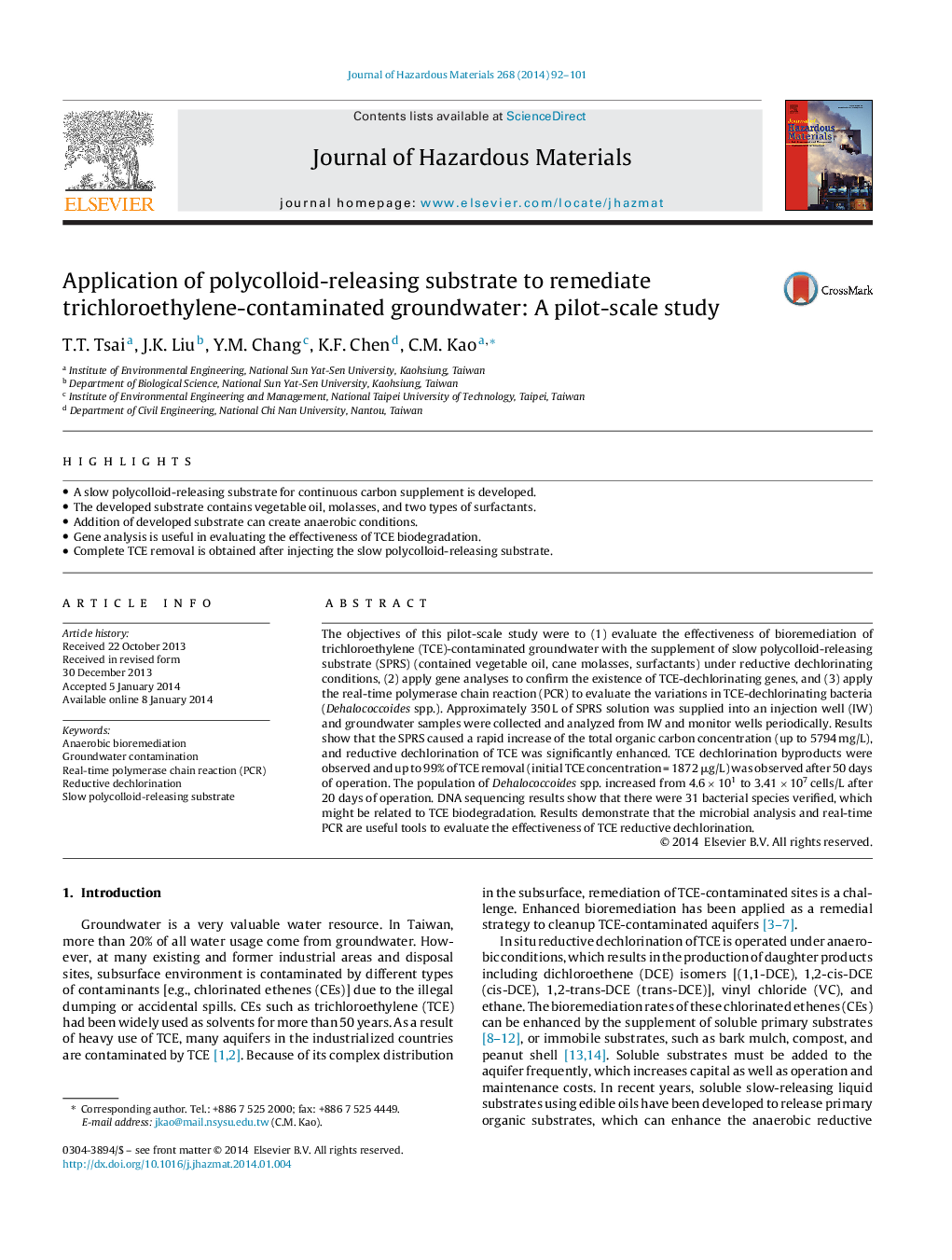| کد مقاله | کد نشریه | سال انتشار | مقاله انگلیسی | نسخه تمام متن |
|---|---|---|---|---|
| 577112 | 1453092 | 2014 | 10 صفحه PDF | دانلود رایگان |
عنوان انگلیسی مقاله ISI
Application of polycolloid-releasing substrate to remediate trichloroethylene-contaminated groundwater: A pilot-scale study
ترجمه فارسی عنوان
استفاده از سوبسترا آزاد کننده پلی کلوئیدی برای ترمیم آبهای زیرزمینی آلوده به تری کلروتایین: یک مطالعه در مقیاس آزمایشی
دانلود مقاله + سفارش ترجمه
دانلود مقاله ISI انگلیسی
رایگان برای ایرانیان
کلمات کلیدی
موضوعات مرتبط
مهندسی و علوم پایه
مهندسی شیمی
بهداشت و امنیت شیمی
چکیده انگلیسی
The objectives of this pilot-scale study were to (1) evaluate the effectiveness of bioremediation of trichloroethylene (TCE)-contaminated groundwater with the supplement of slow polycolloid-releasing substrate (SPRS) (contained vegetable oil, cane molasses, surfactants) under reductive dechlorinating conditions, (2) apply gene analyses to confirm the existence of TCE-dechlorinating genes, and (3) apply the real-time polymerase chain reaction (PCR) to evaluate the variations in TCE-dechlorinating bacteria (Dehalococcoides spp.). Approximately 350 L of SPRS solution was supplied into an injection well (IW) and groundwater samples were collected and analyzed from IW and monitor wells periodically. Results show that the SPRS caused a rapid increase of the total organic carbon concentration (up to 5794 mg/L), and reductive dechlorination of TCE was significantly enhanced. TCE dechlorination byproducts were observed and up to 99% of TCE removal (initial TCE concentration = 1872 μg/L) was observed after 50 days of operation. The population of Dehalococcoides spp. increased from 4.6 Ã 101 to 3.41 Ã 107 cells/L after 20 days of operation. DNA sequencing results show that there were 31 bacterial species verified, which might be related to TCE biodegradation. Results demonstrate that the microbial analysis and real-time PCR are useful tools to evaluate the effectiveness of TCE reductive dechlorination.
ناشر
Database: Elsevier - ScienceDirect (ساینس دایرکت)
Journal: Journal of Hazardous Materials - Volume 268, 15 March 2014, Pages 92-101
Journal: Journal of Hazardous Materials - Volume 268, 15 March 2014, Pages 92-101
نویسندگان
T.T. Tsai, J.K. Liu, Y.M. Chang, K.F. Chen, C.M. Kao,
